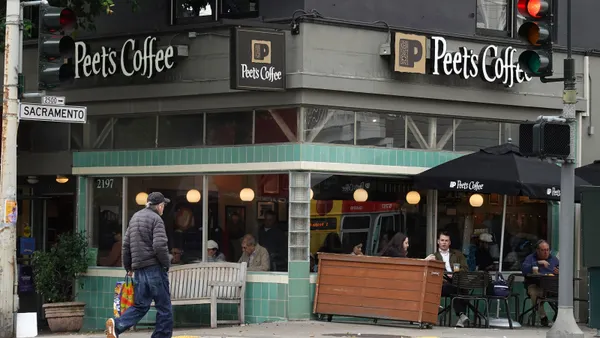Dive Brief:
- Within the hotel, food services and hospitality industry, 37.7% of employees were found to be dissatisfied with the amount of sleep they're getting, according to a survey of more than 1,000 people by TheSleepJudge.com
- Of these employees, over 47% said they were looking for another job.
- Every year, tired and/or fatigued employees affect company losses to tune of $411B in terms of productivity.
Dive Insight:
With more than half of restaurant managers working 50 hours or more, lack of sleep isn't helping alleviate the demands of the restaurant industry, and certainly not turnover. Additionally, 74% of chefs and staff feel burned out due to sleep deprivation among other hardships, according to data from FairKitchens.com.
A lack of sleep can be a serious problem in the restaurant industry and lead to shift-work sleep disorder, which results in insomnia and excessive daytime sleepiness. Staff that work late night shifts can often feel isolated from loved ones since their social lives don't align and have a harder time getting regular exercise and eating healthy meals. Restaurant workers also are plagued with high rates of depression, suicide, substance abuse, anxiety and other mental health issues.
The industry is working on providing resources for its workforce — for example, food reporter Kat Kinsman helped found Chefs With Issues, a forum for chefs, servers and restaurant workers to share their issues and find helpful resources. Restaurants across segments are also under pressure to improve high turnover and low job satisfaction. Places such as Starbucks and Shake Shack have benefits packages — the latter even testing a four-day work week to improve retention — but most servers and staff average about $25,000 in salary and won't pay for health coverage unless they earn closer to $45,000.
Due to so many food service staffers suffering and ultimately causing high turnover rates in QSRs, food entities have turned to an array of tactics to fill their short-handed operations. Amid these efforts, In-N-Out advertised an introductory pay of $11 per hour. Nevertheless, the industry is struggling to acquire and retain workers, causing many restaurants to rethink pay, culture and training.











